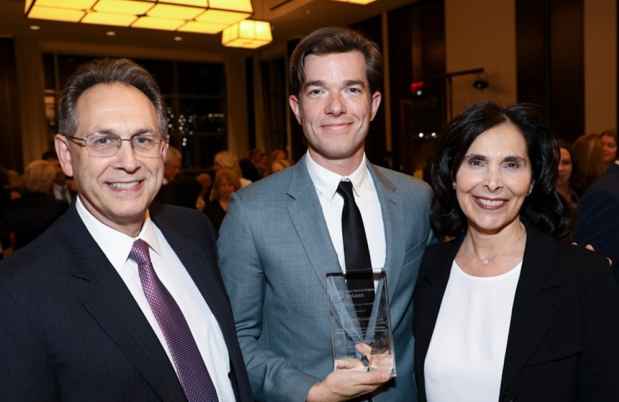Brian Scott sees his own depression and anxiety as a gift. And that’s a lesson he tries to impart to the patients with whom he works.
As McLean’s first formal patient/family navigator, Scott helps patients and families negotiate the challenges to living meaningful, fulfilling lives after hospital care. That might mean brainstorming career or volunteer opportunities with a patient, helping a family reconnect with an estranged child, assisting with insurance forms, or running a recovery and resiliency group at a program. The role is funded as a three-year pilot by The Manton Foundation.
“There is a fair amount of mentoring too,” said Scott. “When you meet with someone to help with a volunteer or job opportunity, for example, you’ll also find yourself enmeshed in their fears, their concerns, and their relationships. I help them—and their families—navigate that as well.”
March 2019 marked the first anniversary of the patient/family navigator role and Scott has been reflecting on the past year. To date, he has worked with roughly 150 patients and families who are largely referred to him by McLean clinicians and other staff—though others find him through the Cole Resource Center. Many of the connections he makes begin with a single need and evolve into long-term, meaningful relationships where Scott can provide ongoing support.
Linda M. Flaherty, RN, PMHCNS-BC, senior vice president of patient care services, said the philanthropically supported navigator role is rooted in the recovery model—“a model that is not disease- or symptom-based, but rather strength-based,” she explained. “You don’t define patients by their illnesses, but rather you focus on working with them and their families to achieve their goals. The Manton Foundation has been incredibly generous with McLean over the years. We are so grateful that they understand the power and potential of this model.”
The Peer Movement
Peer counselors have become increasingly popular over the past two decades—valued for their firsthand experience living with mental illness and their hard-won skills and knowledge.

Scott works out of the Cole Resource Center, a nonprofit located at the hospital, which allows him to collaborate closely with Cole Resource Center Executive Director Joanne Grady-Savard. “Brian has brought heart and passion and the critical experience of being a peer to our work,” she said. “He communicates hope, and individuals really connect with him.”
One such person is Tom, 60, who was first hospitalized at McLean in 1985 for bipolar disorder. He lives in a halfway house close to the hospital and has been connected to McLean—as a patient, volunteer, and employee—for decades. When Scott discovered that Tom was passionate about architecture and astronomy, he began meeting with him twice a week to help Tom brush up on his computer skills and create PowerPoint presentations about his interests. They’re now working together on revamping the Cole Resource Center’s website. “Brian and I work as partners. He’s a really nice guy and I feel very comfortable working with him,” said Tom, adding that it feels good to be able to give something back to the hospital.
Scott is transparent about his own struggles with psychiatric illness and his long journey—marked by self-harm, overwhelming guilt and shame, divorce, law school, a high-stress job at a downtown law firm, and his eventual realization that he was living a life he did not want. “It wasn’t until I stopped running from my diagnosis and integrated the splintered parts of myself that I started down the path that I’m on now,” said Scott, who is pursuing a master’s degree in mental health counseling at night. “This process led me to McLean and to a career in mental health. When my disparate identities came together, I realized they could line up. All of my own struggles will have been worthwhile if I can help someone else find hope. That’s the best gift.”
To learn more about the Cole Resource Center’s services, visit coleresourcecenter.org or call 617.855.3298.
Media Requests
Journalist or member of the media? We are available 24/7 for media requests.



